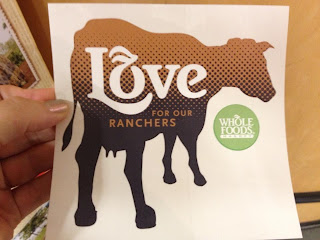I think that it was the summer of 2000 that a young, muscular black cat became my close gardening companion. I knew that he came from the apartment above mine. It concerned me that he seemed to almost always be outside, which left me uneasy given that we lived on a busy downtown street corner where I'd already watched one cat die from a hit and run. The parking lot adjacent to our yard was also a spot where kids attending all-ages shows at the Elk's Club across the street used to congregate to drink, fight and break bottles. The summer was hot and the cat I came to call "Sammy" -- an abbreviation of the horrible name the upstairs neighbour had given him -- had little other than a half-filled and filthy water dish at his disposal, a tipped over box of dry kibble left out 24/7. I offered him water. I filled a dish with proper kibble. He, in turn, would stretch lazily in the grass beside me as I pinched and plucked various plants. Several times, I observed the neighbour parking her car and Sammy running out from a bush beneath which he spent much of his time out of the sun, eager to greet her and her two children. She would instruct the children to ignore him and he would be left in the yard staring after them as they went inside. It broke my heart. He was alone.
I noticed scratches from what I assumed were scraps with neighbourhood cats. There was a feral colony a few blocks away. There were several roaming toms all over, some who'd walk into the yard. Late in the summer, one scrap left Sammy with an infected bite, swollen and pus-filled. He allowed me to drain it and to treat it with antibiotics. I mentioned it to the neighbour, who expressed annoyance at my having brought it to her attention. Over the next while, I continued to spend time with this friendly and neglected cat, discussing with my ex what I felt might be done. We had just that previous summer adopted kittens Zeus and Sophie to add to the household we shared with six-year-old siblings Tarwater and Almonzo. Bringing yet another cat wasn't something either of us sought.
Another abscessed wound later and as summer turned to fall and the evenings became colder, we confirmed that Sammy was in fact being left outside 24/7 and I began to let him into our attached shed at night to stay warm. Halloween was coming and a three band bill had been announced at the Elk's Club. Sammy was outside just after dusk as I was putting gardening tools away. I heard some kids in the parking lot laughing and someone drunkenly calling "Here kitty, kitty!" and I immediately called out "Sammy, Sammy, Sammy!" and he came running and I let him into the shed. I decided that moment that I wasn't going to risk losing him again.
Earlier this year when Zeus died, Sammy ended up alone in my apartment for the first time in a decade. I was out of the country and unable to return for a week. My cat sitter Vadini upped her presence to comfort him (and for that, I am so grateful to her). My friend Tanya promised to come visit, as well. When I returned, Sammy was ecstatic. I was the last of his family and had come home. For the next few weeks, we cuddled almost constantly. Afraid, I think, to be left alone again, he would follow me everywhere. I realized that after his having spent his entire life in this home with the company of other feline companions that he needed another friend. I brought home Eli, whose great enthusiasm for play soon exhausted my poor old guy. A few weeks after skittish Eli had begun to settle in and when it became clear that Sammy was alright with his company, but in need of respite from his many insistent attempts at rowdy play, I brought home Minou to distract Eli and to add a gentle third to my feline family.
Several months later, Sammy was diagnosed with chronic renal failure. Because of his strong aversion to being handled (and thus medicated) and since he was eating, drinking and appeared content -- particularly because of his age -- the vet agreed that I should watch him closely until a decision needed to be made concerning palliative care. His weight continued to decline, but his appetite was still voracious. Sammy's condition worsened quickly these past few weeks. During his last few days, he barely ate and became incredibly affectionate, seeking constant attention and reassurance -- all of which I gave him. Last Thursday he let me know that he'd had enough and so, on Friday morning, I made the decision I had so very much dreaded and called the veterinary clinic to book an appointment. I was stuck at work, but my friend Tanya agreed to come over to spend the afternoon with him so that his final hours would be with someone who'd loved him and known him almost as long as I had. And for his last hour I held him close. My beautiful old man would not be alone.























